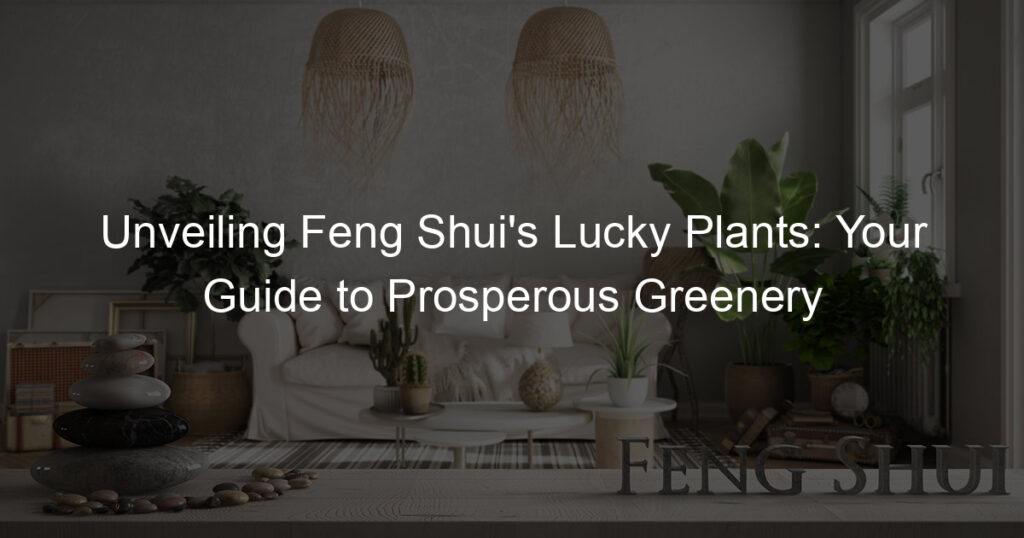
Introduction to Feng Shui Garden Design
Welcome to the fascinating world of Feng Shui garden design. This ancient Chinese practice is more than just a design trend. It’s a way of arranging your outdoor space to create balance and harmony. Let’s dive in and learn more about this concept and its importance in garden design.
- Understanding the concept of Feng Shui
Feng Shui, pronounced as “fung shway,” is an ancient Chinese art and science developed over 3,000 years ago. It’s a complex body of knowledge that reveals how to balance the energies of any given space to assure health and good fortune for people inhabiting it.
In Feng Shui, every part of your garden, from the largest tree to the smallest flower, is believed to have a certain kind of energy or “Chi.” The goal is to arrange these elements in a way that allows the Chi to flow freely, creating a sense of peace and tranquility.
- Importance of Feng Shui in garden design
Applying Feng Shui principles to your garden design can have several benefits. Firstly, a Feng Shui garden can help create a peaceful and serene environment. It’s a place where you can relax, meditate, and reconnect with nature.
Secondly, a well-designed Feng Shui garden can enhance the aesthetic appeal of your outdoor space. It can turn an ordinary garden into a beautiful, harmonious sanctuary.
Lastly, a Feng Shui garden can improve the overall energy of your home. According to Feng Shui principles, a garden with good energy can bring luck, prosperity, and good health to the inhabitants of the house.
In conclusion, understanding and applying the principles of Feng Shui in garden design can help you create a beautiful, peaceful, and energy-filled outdoor space. Stay tuned for more insights into key Feng Shui gardening principles, tips, and advanced design techniques in the upcoming sections.
Key Feng Shui Gardening Principles
Understanding the principles of Feng Shui can help you create a garden that is not only beautiful but also harmonious and balanced. This ancient Chinese practice focuses on arranging your surroundings in a way that optimizes the flow of energy, or ‘chi’. Let’s delve into the key principles of Feng Shui gardening, particularly focusing on the garden layout.
Feng Shui Garden Layout
When it comes to Feng Shui, the layout of your garden plays a crucial role in promoting positive energy. It’s not just about where you place your plants and features, but also how they interact with each other and the environment. Let’s explore how you can plan your garden layout with Feng Shui principles and look at some examples of effective Feng Shui garden layouts.
- Planning your garden layout with Feng Shui principles
- Examples of effective Feng Shui garden layouts
Planning a Feng Shui garden layout involves more than just deciding where to plant your flowers. You need to consider the balance of the five elements (wood, fire, earth, metal, and water), the yin and yang (the balance of opposites), and the bagua (the energy map of your garden). For instance, you could place a water feature in the north of your garden to promote career and life path energy, or plant tall trees in the east for health and family harmony.
Let’s look at some examples of effective Feng Shui garden layouts. One popular layout is the circular or octagonal shape, which represents the bagua. In this layout, different areas of the garden are dedicated to different life areas, such as wealth, health, and relationships. Another effective layout is the balance of yin and yang, where soft, curvy plants (yin) are balanced with hard, straight features (yang), creating a harmonious and balanced garden.
By understanding and applying these Feng Shui principles, you can create a garden that is not only visually appealing but also promotes positive energy and harmony. Remember, the key to a successful Feng Shui garden is balance and harmony among all elements.
Feng Shui Garden Elements
One of the key principles in creating a harmonious Feng Shui garden is understanding and incorporating the five Feng Shui elements. These elements are Wood, Fire, Earth, Metal, and Water. Each of these elements has its own unique properties and contributes to the overall balance of energy in your garden.
- Understanding the five Feng Shui elements
Let’s take a closer look at each of these elements:
| Element | Properties | Examples in a Garden |
|---|---|---|
| Wood | Represents growth and vitality | Trees, plants, wooden furniture |
| Fire | Symbolizes transformation and expansion | Outdoor fireplace, lights, red flowers |
| Earth | Stands for stability and nourishment | Rock formations, clay pots, yellow flowers |
| Metal | Signifies clarity and precision | Metal sculptures, white flowers, wind chimes |
| Water | Associated with wisdom and serenity | Ponds, fountains, mirrors |
- How to incorporate these elements into your garden
Now that we understand what each element represents, let’s explore how to incorporate them into your garden. Remember, the goal is to create a balance of all five elements.
For Wood, consider adding more plants or a wooden bench. For Fire, you might add a fire pit or use warm-colored flowers. Earth can be represented by adding a rock garden or using earth-toned pots. Metal can be incorporated through garden sculptures or wind chimes. Finally, for Water, consider adding a small fountain or a bird bath.
By understanding and incorporating these five elements, you can create a garden that not only looks beautiful, but also promotes positive energy and harmony.
Feng Shui Garden Tips and Advice
Creating a Feng Shui garden is not just about aesthetics. It’s about balancing energies to bring harmony and peace into your outdoor space. Let’s explore some do’s and don’ts to help you create a garden that radiates positive energy.
Feng Shui Dos and Don’ts
Understanding the principles of Feng Shui can help you create a garden that is not only beautiful but also promotes good health and fortune. Here are some key practices to adopt and common mistakes to avoid.
- Key Feng Shui practices to adopt in your garden
- Common Feng Shui mistakes to avoid
Start by decluttering your garden. A clean, well-organized space allows Chi (energy) to flow freely. Incorporate the five elements of Feng Shui – wood, fire, earth, metal, and water – in your garden design. For example, you can use a wooden bench (wood), a fire pit (fire), a stone pathway (earth), a metal sculpture (metal), and a water fountain (water).
Also, consider the yin and yang theory when selecting plants. Balance bright, vibrant flowers (yang) with more subdued, calming plants (yin). Lastly, remember to place your garden elements mindfully. For instance, water features should be placed in the north or east, while fire elements should be in the south.
One common mistake is neglecting the garden’s entrance. The entrance is where Chi enters, so make sure it’s inviting and clear of any obstructions. Avoid having too many straight lines or sharp corners as these can create Sha Chi, or negative energy. Instead, opt for curved pathways and rounded garden beds.
Another mistake is having too much of one element, which can disrupt balance. For example, an excess of water elements can create a sense of emotional instability. Lastly, avoid dead or dying plants as they can attract negative energy. Regularly prune and care for your plants to maintain a vibrant, healthy garden.
Remember, the goal of Feng Shui is to create a balanced, harmonious environment. By following these tips and avoiding common mistakes, you can create a garden that not only looks good but also promotes positive energy and well-being.
Feng Shui for Outdoor Spaces
Just as Feng Shui can bring harmony and balance to your indoor spaces, it can also enhance the energy of your outdoor spaces. Whether you have a small patio, a large deck, or a sprawling garden, applying Feng Shui principles can help create a relaxing and inviting environment.
- Applying Feng Shui principles to patios, decks, and other outdoor spaces
- Case study: A Feng Shui-inspired outdoor living space
Applying Feng Shui principles to your outdoor spaces starts with understanding the five elements of Feng Shui: Wood, Fire, Earth, Metal, and Water. Each of these elements can be represented in your outdoor spaces in various ways. For instance, wood can be represented by plants and trees, fire by a fire pit or outdoor lights, earth by rocks or statues, metal by furniture or decorations, and water by a pond or fountain.
In addition to the five elements, the principle of balance is also essential in Feng Shui. This means creating a space that is neither too cluttered nor too sparse. A well-balanced patio or deck can be achieved by carefully arranging your outdoor furniture and decorations, ensuring there is enough space to move around, and incorporating a variety of plants and flowers.
Consider the case of a homeowner who transformed their plain backyard into a Feng Shui-inspired oasis. They started by adding a water feature in the north area of the garden to enhance their career and life path, as water represents flow and abundance in Feng Shui. They then added a metal wind chime in the west area to boost creativity and children’s luck.
In the southeast area, which is associated with wealth and abundance, they placed a wooden bench and a variety of plants. The center of the garden, representing health, was left open and spacious. The result was a harmonious and balanced outdoor living space that not only looked beautiful but also promoted positive energy and well-being.
In conclusion, applying Feng Shui principles to your outdoor spaces can help create a harmonious and inviting environment. Whether you’re designing a new patio or looking to enhance your existing garden, consider incorporating the principles of Feng Shui for a space that promotes balance, positivity, and well-being.
Advanced Feng Shui Garden Design
As we delve deeper into the world of Feng Shui garden design, we come across more advanced concepts that can help us create a truly balanced and harmonious garden space. Let’s explore these concepts further.
Creating a Balanced Garden
Creating a balanced garden is not just about placing plants and objects in the right places. It’s about understanding and applying the principles of Yin and Yang, and creating a harmonious balance of these energies in your garden. Let’s break this down into two steps.
- Understanding the concept of Yin and Yang in Feng Shui
- Creating balance in your garden with Feng Shui
In Feng Shui, Yin and Yang represent the two opposing yet complementary forces that make up the universe. Yin is the passive, quiet, and dark force, while Yang is the active, loud, and bright force. In a garden, Yin could be represented by shady areas, water features, and rounded shapes, while Yang could be represented by sunny areas, fire features, and angular shapes.
To create a balanced garden, you need to have a good mix of Yin and Yang elements. This doesn’t mean you need an equal number of each, but rather that you should aim for a harmonious blend. For example, a sunny patio area (Yang) could be balanced by a nearby shady tree (Yin). Or a straight path (Yang) could be softened with some rounded stepping stones (Yin). Experiment with different combinations to find what feels right for your garden.
Remember, the goal of Feng Shui is not to create a perfectly balanced, symmetrical space, but rather to create a space that feels balanced and harmonious to you. So don’t be afraid to trust your instincts and make adjustments as needed.
Using Feng Shui to Enhance Garden Energy
When it comes to enhancing the energy of your garden, Feng Shui offers a wealth of techniques and principles. By implementing these, you can transform your outdoor space into a haven of positive energy and tranquility. Let’s explore some effective techniques and key takeaways for maintaining your Feng Shui garden.
- Techniques for boosting positive energy in your garden
Boosting positive energy in your garden involves more than just planting flowers and trees. It’s about creating a harmonious balance between the elements and directing the flow of energy, or ‘Chi’, in a positive way. Here are some techniques:
| Technique | Description |
|---|---|
| Water Features | Adding a water feature like a fountain or pond can attract positive energy. The flowing water symbolizes wealth and prosperity in Feng Shui. |
| Wind Chimes | Wind chimes can be used to break up negative energy and promote a flow of positive energy. They also create soothing sounds that can enhance the tranquility of your garden. |
| Plant Placement | Plants should be placed in a way that promotes balance and harmony. Avoid clustering plants in one area and leave some spaces open to allow energy to flow freely. |
- Key takeaways for maintaining your Feng Shui garden
Maintaining your Feng Shui garden involves regular upkeep and mindfulness. Here are some key takeaways:
- Regularly clean and declutter your garden. A clean garden allows positive energy to flow freely.
- Keep your plants healthy. Unhealthy or dead plants can attract negative energy. Regular watering, pruning, and fertilizing are essential.
- Balance is key. Regularly check your garden to ensure it maintains a balance of the five Feng Shui elements: wood, fire, earth, metal, and water.
- Embrace changes. As seasons change, so should your garden. This keeps the energy fresh and vibrant.
By incorporating these techniques and principles, you can create a garden that not only looks beautiful but also promotes positivity and well-being. Remember, the goal of Feng Shui is to create a harmonious environment that enhances the quality of your life.
Conclusion: Mastering Your Garden’s Energy
As we wrap up our journey into the world of Feng Shui garden design, let’s take a moment to reflect on what we’ve learned and how we can apply these principles to our own outdoor spaces.
- Recap of Feng Shui garden design principles
- Balance: A balanced garden incorporates elements of both yin and yang, creating a harmonious blend of light and dark, soft and hard, and active and passive elements.
- Energy Flow: The layout of your garden should encourage a smooth flow of energy, or ‘chi’, throughout the space. This can be achieved through the strategic placement of plants, paths, and water features.
- Nature Connection: A Feng Shui garden should reflect and enhance the natural world, using plants, rocks, and water to create a peaceful, tranquil environment.
- Final thoughts on Feng Shui for outdoor spaces
Feng Shui is an ancient Chinese practice that promotes harmony and balance between individuals and their surroundings. In the context of garden design, we’ve discovered that the key principles of Feng Shui include:
Creating a Feng Shui garden is more than just a design project – it’s a journey towards a more balanced and harmonious lifestyle. By applying the principles we’ve discussed, you can transform your outdoor space into a sanctuary of peace and tranquility.
Remember, the most important aspect of Feng Shui is that it feels right to you. Your garden should be a place where you feel at ease, connected to nature, and able to recharge your energy. So, don’t be afraid to experiment and adapt these principles to suit your personal style and preferences.
As you continue to master your garden’s energy, remember that Feng Shui is a journey, not a destination. Every change you make, no matter how small, brings you one step closer to creating a garden that truly reflects and enhances your own energy. Happy gardening!














